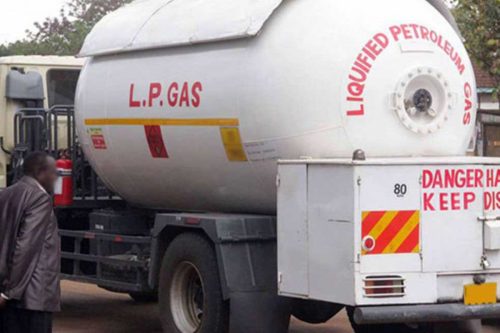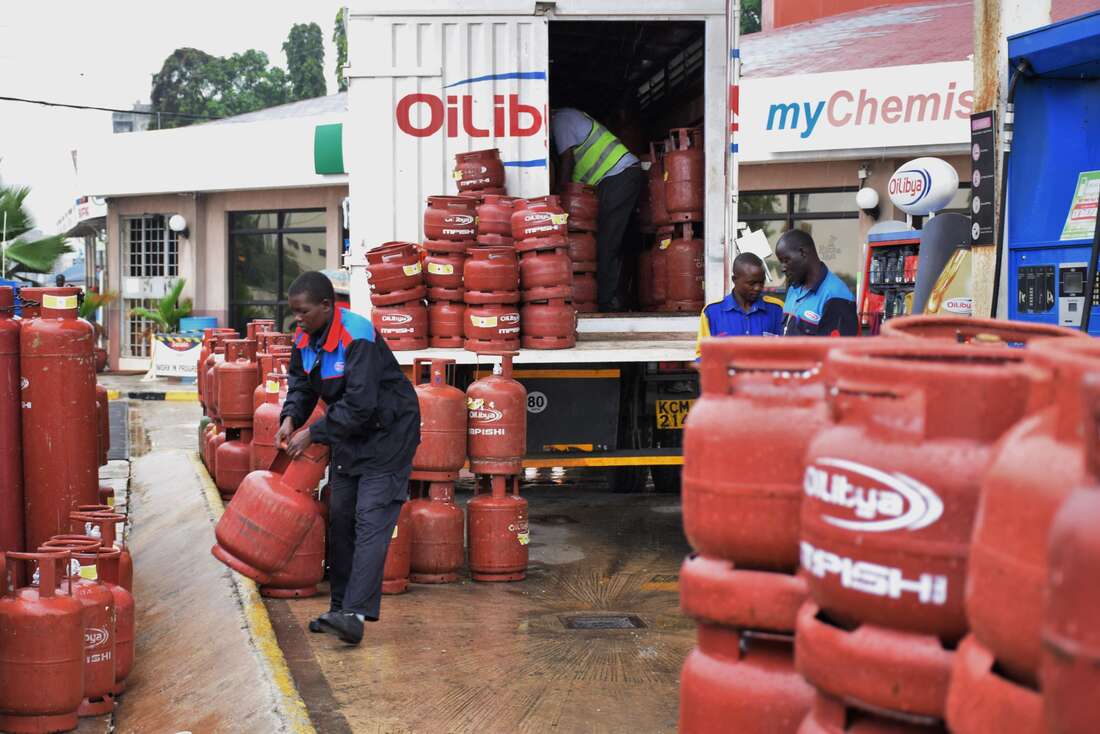Kenya’s new LPG storage terminal project is set to welcome 10 companies that have expressed interest in entering the market; This may enable the country to secure fuel supplies for homes in the medium and long term.
The Kenyan company, Fossil Supplies Limited, announced that it has submitted an environmental impact report for the project to the National Environment Agency (NEMA) to obtain its approval, among other approvals that it is seeking to obtain from the competent authorities, according to the specialized local website, The East African.
In June 2023, Kenya launched a project to build a huge storage terminal for the import of liquefied petroleum gas in the port city of Mombasa, while opening the door for private sector companies wishing to enter the sector.
From this station, Kenya aims to enhance its own capabilities in securing liquefied oil gas, which is used extensively in home cooking, as part of a plan to dispense with gas imports from its troubled African neighbor, Tanzania.
The organizers in Kenya received 10 companies that expressed their desire to invest in the terminal project for importing, storing and supplying liquefied petroleum gas locally.
Fossil Supplies is a leading provider of petroleum products to a chain of petrol stations in Kenya, Uganda, South Sudan, Rwanda, Burundi and Congo.
Fossil is a member of the Kenyan oil refinery, and has a transportation and storage agreement with the Kenyan Pipeline Company (KBC), as well as a number of agreements with oil companies that own stations in Mombasa and Nairobi, such as Oil Libya, Total, and others.
The company operates 94 petrol stations in Kenya and Uganda, and produces red gas cylinders under the brand name “Petgas” with weights ranging from 6, 13 and 50 kilograms per cylinder, according to the company’s website.
Tanzanian company competing
Competing with Kenya’s Fossil Supplies is Tyva Gas, the largest Tanzanian company specializing in gas trading, according to the specialized energy platform.
The Tanzanian company applied 6 months ago (June 2022) to obtain a license to establish the station as part of the offers submitted by local and regional competing companies.
The said LPG storage terminal is to be located on 3.5 acres leased from the Kenya Railways in Changamwe, near the government-owned Kenya Pipelines depot.
The cost of this project, which is currently being viewed by the public, is approximately 1.97 billion Kenyan shillings (equivalent to $16 million), according to the specialized energy platform.
(1 US dollar = 123.9 Kenyan shillings).
The terminal consists of reception, storage and re-delivery facilities for liquefied petroleum gas, and is to be used for domestic supply and, at a later stage, for export to neighboring African countries.
LPG is environmentally friendly
The plant project is in line with the Kenyan government’s goal of promoting liquefied petroleum gas (LPG) as an efficient and clean fuel source. Which enhances the plans to reduce carbon emissions in the country.
LPG is composed of a mixture of propane, ordinary butane and isobutane materials derived from crude oil refining or natural gas processing.
This gas is used extensively in domestic purposes, as it is easily imprisoned in iron cylinders used in heating and cooking.
It is also used as fuel for vehicles, in addition to its use in some agricultural, industrial and commercial purposes, according to what was monitored by the specialized energy platform.
Liquefied petroleum gas is easily compressed, transported, and stored. It is also characterized by low emission rates resulting from its use. This encourages many developing countries to adopt expansion plans in line with urgent plans to save energy and future plans for climate transition.
Benu Araman, president of Oryx Gas Tanzania, says LPG represents an opportunity for most poor countries that cannot afford renewable energy and still depend on coal and wood for cooking.
Breaking the monopoly of Africa Gas

Kenya plans to boost LNG imports through the new Mombasa port storage and import terminal project, which will provide a joint use that will enable oil suppliers to access various alternatives to import LNG at competitive prices in the interest of end consumers.
Kenya Pipeline Company (KBC) expects this plant to help reduce domestic prices by 30%; This may reduce consumers’ monthly energy bills.
This situation will lead to breaking the current monopoly by the “Africa Gas & Oil Limited” company, which owns the liquefied oil gas storage facility with a capacity of 10 thousand tons.
This company handles 90% of liquefied petroleum gas imports to Kenya, and the new facility is expected to help break this situation by entering new players into the import market. Which may lead to competitive prices.
The volume of liquefied petroleum gas consumption in Kenya is approximately 300,000 metric tons annually, according to the specialized energy platform.
related topics..
Also read..

Leave a Reply